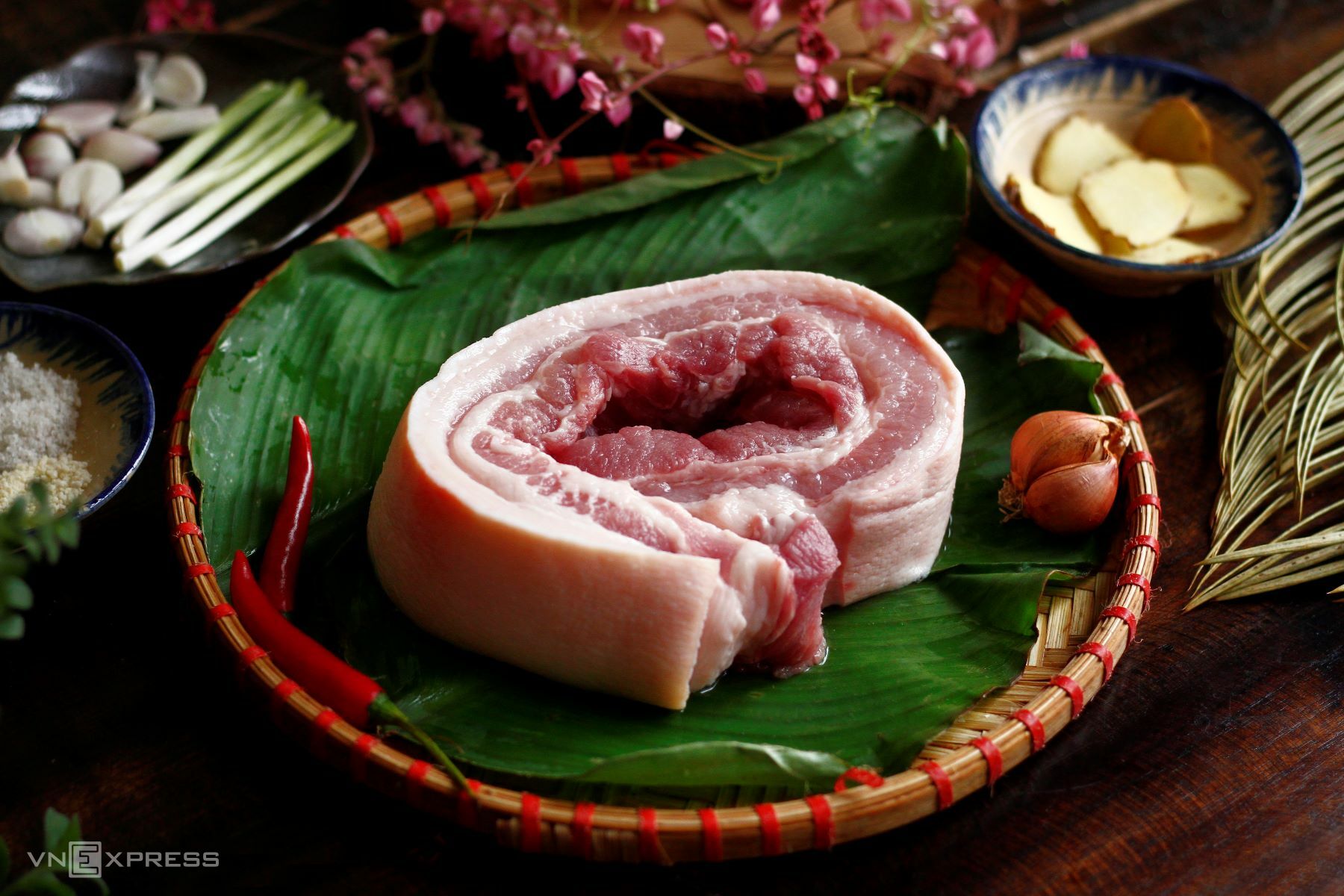Vietnamese people often buy meat and fish from local markets. Pork may be displayed on large wooden trays, exposed to the air, dust, and the hands of sellers and buyers. Chicken and fish are often processed on-site, resulting in lingering smells and impurities. Therefore, home cooks believe that washing these items under running water is essential. For added reassurance, many also use other methods like rubbing with salt, white wine, vinegar, lemon, or ginger.
Although it doesn't eliminate bacteria, washing physically cleans the ingredients, making them easier to prepare. This practice has become customary, passed down through generations.
 |
Illustrative photo: Bui Thuy |
According to the United States Department of Agriculture (USDA) and the Food and Drug Administration (FDA), washing raw meat and fish with water doesn't remove bacteria but can spread them.
When rinsed under running water, the splashes can carry bacteria to sinks, knives, cutting boards, towels, and the hands of those handling the food, causing cross-contamination.
A US survey revealed that after washing chicken, over 25% of sinks still harbored bacteria, and many nearby vegetable samples became contaminated. Studies show that bacteria like Salmonella and Campylobacter cling to the surface of meat, and a quick rinse won't remove them. Only thorough cooking to a safe temperature eliminates these pathogens.
Washing salmon or beef steak, often cooked rare or medium-rare to retain moisture, diminishes their characteristic flavor. Washing beef removes surface fluids that keep it juicy. Salmon is rich in omega-3s and other healthy oils, and washing can make it bland and less flavorful. Furthermore, bacteria typically reside on the surface, so proper cooking techniques ensure safety.
This is why the FDA advises against washing salmon before cooking. Many chefs also recommend keeping the surface dry for better Maillard reaction during pan-searing.
 |
Fresh fish may not need washing before cooking. Photo: Bui Thuy |
When should you wash, and when shouldn't you?
There's no absolute right or wrong answer. It depends on the food source and the processing environment. If you live in a city and purchase sourced, pre-processed, packaged, and properly stored meat and fish from supermarkets, washing is unnecessary. Simply pat the surface dry with a clean paper towel and proceed with cooking.
Conversely, if purchasing from local markets, a quick rinse under running water is still a necessary habit. Afterward, you can briefly soak the items in diluted salt water or ginger-infused wine to eliminate odors. It's crucial to wash efficiently and immediately sanitize the sink and utensils to prevent bacterial spread to other foods. After washing, pat dry with a clean paper towel before cooking.
Food experts emphasize that thorough cooking remains paramount. Harmful bacteria like Salmonella, E. coli, and parasites in meat and fish are eliminated when food reaches a safe internal temperature.
The European Food Safety Authority (EFSA) and the FDA recommend a minimum temperature of around 70°C. Specifically, poultry should reach 74°C, ground pork and beef around 71°C, and fish and whole cuts of beef are safe from 63°C but should rest for a few minutes to allow heat to distribute evenly.
If not cooked properly, such as undercooked meat or fish, the risk remains regardless of how many times it's washed. Therefore, washing should be considered a secondary preparation step, removing visible dirt and providing peace of mind, not a definitive safety measure.
Bui Thuy












